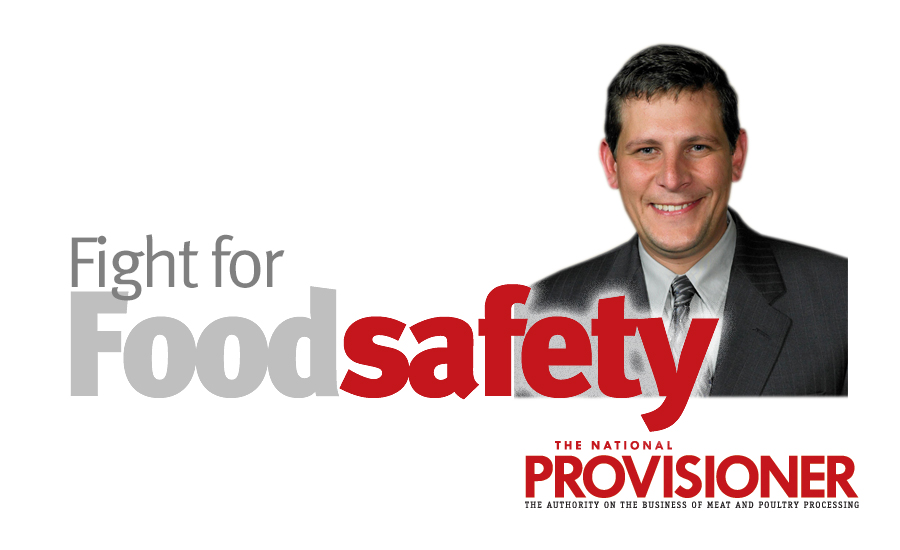As a food-safety lawyer, these three words send shivers down my spine. They are all exceptionally difficult to routinely control in products regulated by the USDA Food Safety and Inspection Service (FSIS). Almost invariably, at least one of these three words is featured prominently in recalls.
Those of you who read my columns know how passionate I am about helping food companies avoid recalls. By focusing on accurate allergen labeling, controlling pathogens in the food processing environment and avoiding the oversight that leads to golf ball parts making their way into food products, the processing industry can do a better job. But doing so takes persistence and it requires avoiding complacency at all costs.
When it comes to recalls, how are FSIS-regulated establishments doing? As of the time this column was written, there have been 23 recalls of FSIS products this year, compared with 26 recalls at this point last year. It appears the industry has gotten off to a good start in 2018.
When it comes to controlling for undeclared allergens, the data support this conclusion. At this point last year, more than 1 million pounds of products had been recalled for the presence undeclared allergens and misbranding. This year has seen a huge improvement, with only 29,424 pounds being recalled. Congrats is owed to all, and I encourage you to keep up the good work.
While there has been demonstrable success in the realm of allergen control, the trends are reversed in other areas.
At this point last year, 210,452 pounds of product had been recalled for pathogen concerns. So far this year, the number has tripled. To date, a total of 685,116 pounds of product has been recalled because of the presence of harmful pathogens. In many cases the companies discovered the contamination themselves, in other cases FSIS or Canadian Food Inspection Agency (CFIA) testing identified the presence of pathogens, and in at least one case the products were responsible for a Salmonella outbreak involving 170 people.
While most of the contamination was caused by avoidable processing and testing shortfalls, in some cases the contamination originated from upstream suppliers. This should serve as a reminder that bad things always roll downhill or flow downstream. You should always, without fail, closely scrutinize and carefully select only the best supply partners.
Finally, industry also continues to struggle with foreign objects. While only 82,634 pounds of products were recalled at this point in 2017 for foreign materials, the number so far this year has increased substantially. To date, 214,981 pounds of product has been recalled for the presence of unwanted foreign materials including metal, rubber and green hard plastic.
As you continue to navigate the food safety road, be sure to keep up your guard. Unwanted allergens, pathogens or objects are likely hiding right around the next corner. NP





Report Abusive Comment